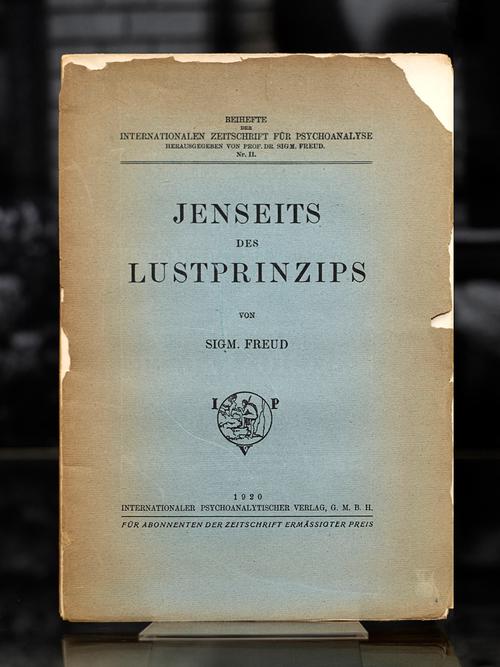
Beyond the Pleasure Principle: A Speculative Breakthrough
Completed amidst the pandemic in 1920, Beyond the Pleasure Principle was Freud’s attempt to answer a question at the very heart of psychoanalysis. Psychoanalysis sought to demonstrate that the workings of our inner world were dominated by what Freud termed the ‘pleasure principle’ – an instinctive drive to avoid suffering and pursue pleasure.
However, if our psychical apparatus was regulated by the pleasure principle, how could we explain that people who have suffered from physical or mental trauma seem compelled to endlessly repeat these traumas in their dreams and phantasies? If the pleasure principle were true, how could psychoanalysis account for this ‘compulsion to repeat’, which was particularly apparent in the symptoms displayed by soldiers returning from the horrors of the First World War?
Drawing on a range of disciplines as diverse as microbiology and philosophy, Freud’s attempts to answer this question led him to his last great speculative breakthrough. A new ‘dual instinct’ theory was formed, represented by ‘Eros’ – the life drive behind the instinct for survival and creation – and the death drive, spurring aggression, repetition and self-destruction.